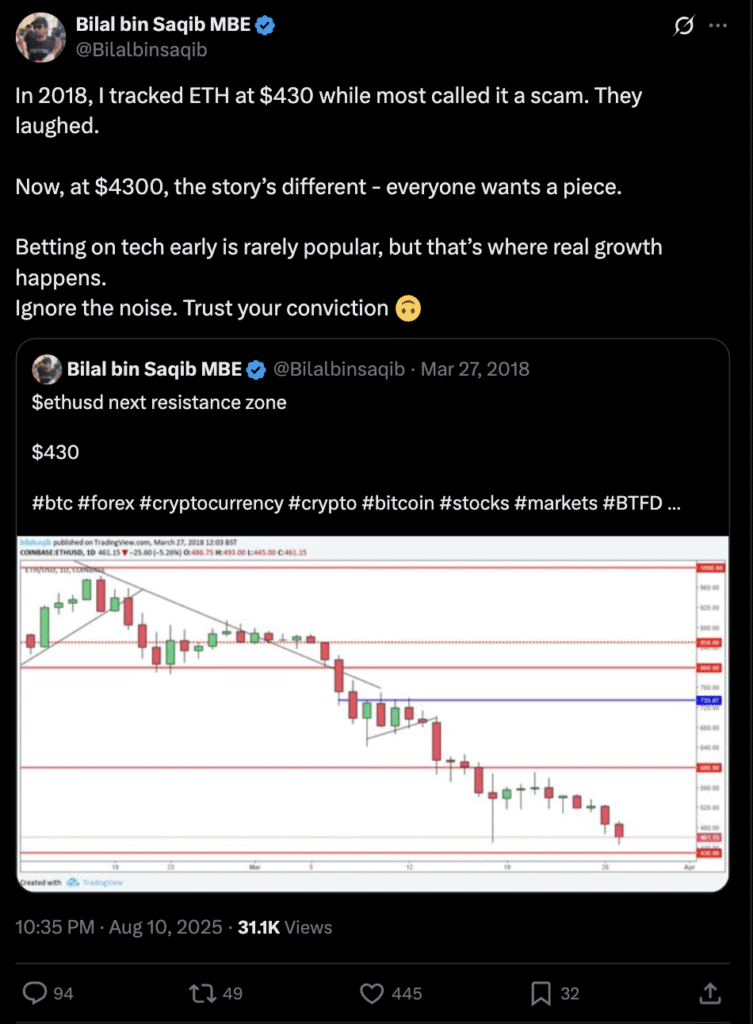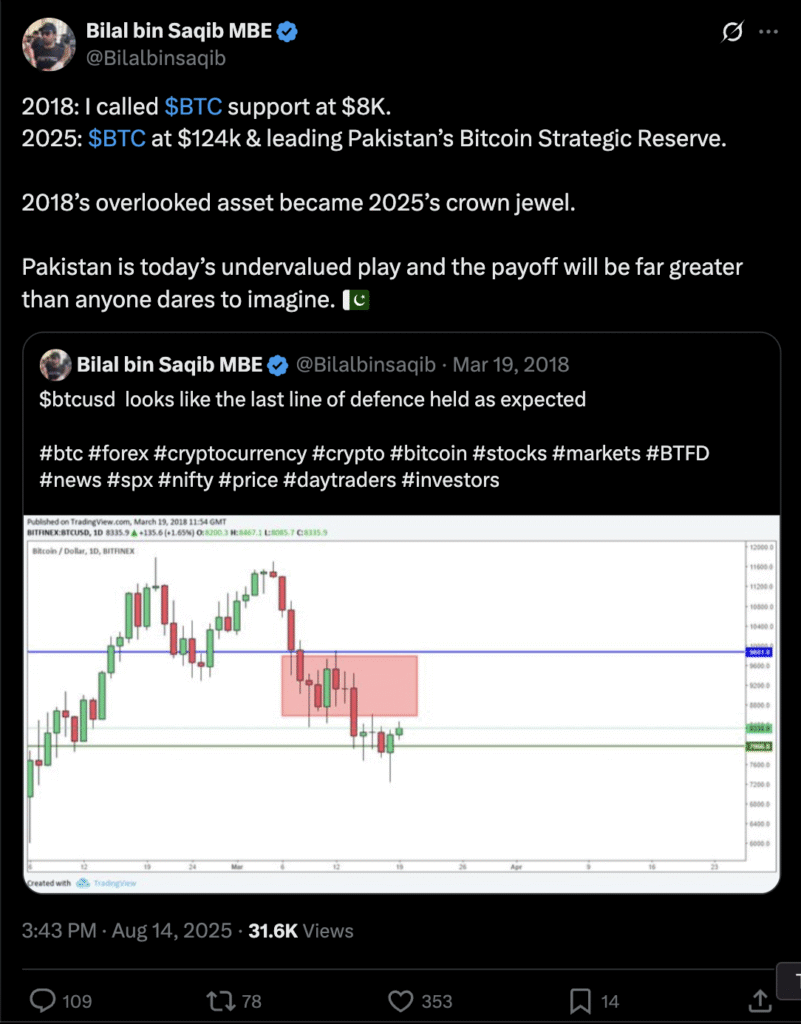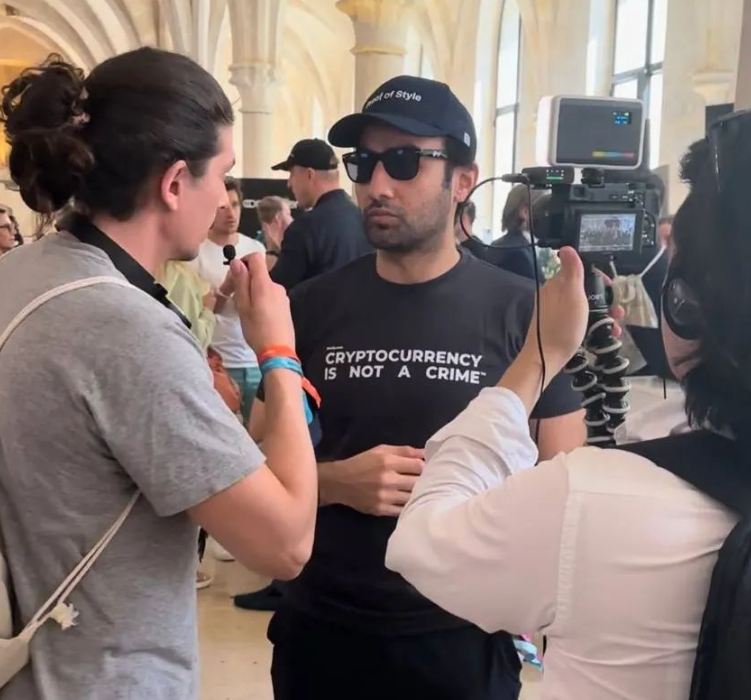When most of the world laughed at Bitcoin and dismissed Ethereum as “internet magic money,” Bilal Bin Saqib was already charting the moves that would define the future. Years before taking office as Pakistan’s Minister of State for Crypto and Blockchain, Bilal was publishing razor-sharp market calls — the kind that age into legend.

In 2018, with Ethereum at just $430 and Bitcoin near $8,000, he was already mapping support zones and resistance levels that traders today would pay to see. While the loudest voices were mocking crypto as a bubble, Bilal was betting on the future — and he was right.
Fast forward to 2025: Ethereum hits $4,300. Bitcoin smashes through $124,000. And the same man who once called the market in its infancy now commands the strategy behind Pakistan’s Bitcoin Strategic Reserve, a move placing the country in an elite group of nations with a sovereign crypto game plan.

As he puts it: “2018’s overlooked asset became 2025’s crown jewel. Pakistan is today’s undervalued play — and the payoff will be greater than anyone dares imagine.”
Under Bilal’s leadership, Pakistan has launched the Pakistan Virtual Assets Regulatory Authority (PVARA), bringing in licensing, compliance, etc. The vision? Make Pakistan a regional blockchain powerhouse before the rest of the world catches up.
Beyond regulation and reserves, Bilal’s crypto diplomacy is reshaping how Pakistan is perceived on the world stage. Speaking to the Financial Times, he noted, “Pakistan’s crypto diplomacy has allowed us to rebrand Pakistan as a builder, not just a beneficiary, in the global innovation ecosystem.”
With one foot in the trenches of crypto’s early wild west and the other on the global policy stage, Bilal isn’t just a minister — he’s the OG who saw it before the world believed. And now, he’s betting that Pakistan’s crypto future will be the biggest trade of them all.
In an industry where policy development often drags on for years, Pakistan’s rapid rise in the crypto space has been nothing short of remarkable. In less than two years, the country has transitioned from fragmented conversations about blockchain to implementing a fully-fledged national strategy. Under Bilal Bin Saqib’s leadership, milestones that many nations struggle to achieve over a decade have been realised in record time.
The establishment of the Pakistan Virtual Assets Regulatory Authority (PVARA) brought immediate clarity to an industry that had long operated in uncertainty. Within months, comprehensive licensing frameworks were drafted, consultation processes with industry stakeholders began, and compliance protocols aligned with FATF standards were introduced. These moves were not incremental tweaks — they were bold structural shifts that instantly positioned Pakistan as a serious contender in the global digital asset arena.
Perhaps most impressively, the conceptualisation and launch of the Bitcoin Strategic Reserve came at lightning speed. While other countries continue to debate the merits of holding digital assets at the state level, Pakistan acted decisively, securing its place among the few nations with a crypto reserve. This agility demonstrates not only administrative efficiency but also a deep understanding of how first-mover advantage works in a rapidly evolving market.
The pace has been matched by precision. Every step, from regulatory design to international engagement, has been calculated to ensure Pakistan is seen not as a follower but as a leader in the region’s blockchain economy. This combination of speed, strategic foresight, and flawless execution is what sets Pakistan’s crypto journey apart on the world stage.













